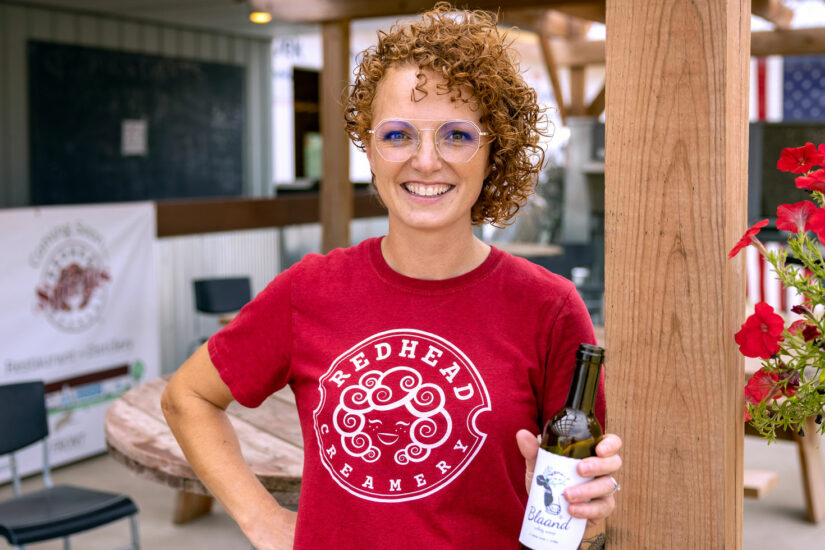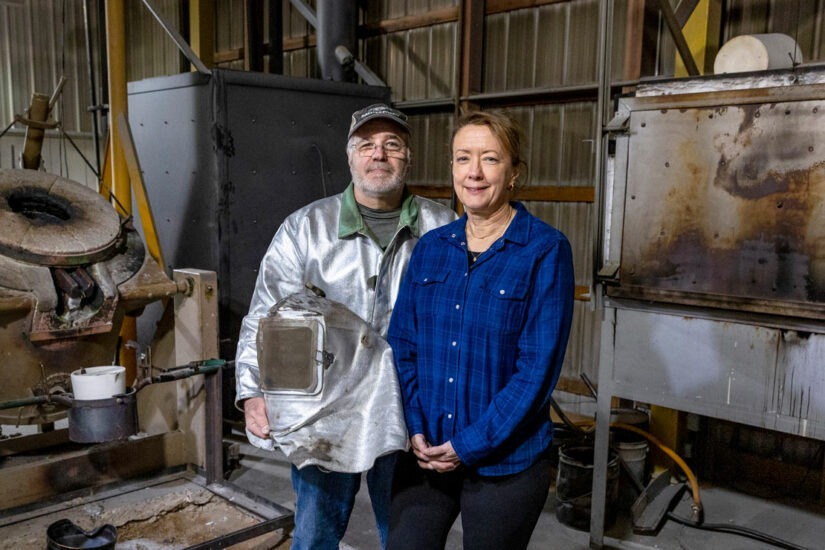GroShed
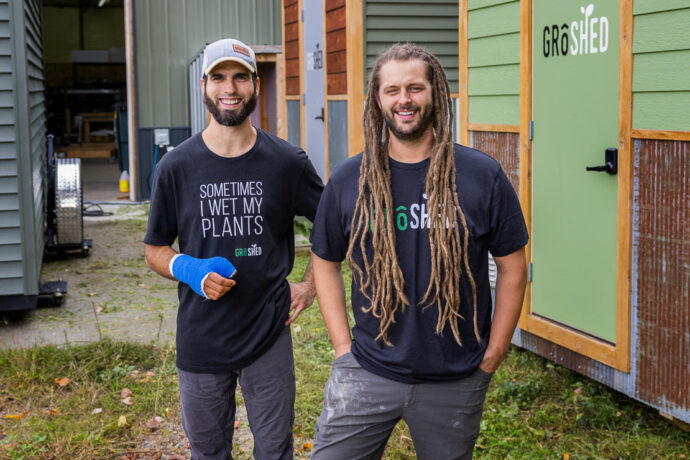
Emily, Minn.
By Maria Surma Manka | Photography by John Linn
Fresh tomatoes in December. A salad from the garden when it’s 20 degrees below zero outside. In northern Minnesota, Jon Friesner made these dreams a reality with GroShed, an agricultural company that provides stand-alone, thermal sheds that can grow vegetables hydroponically year-round.
A father of six children, Friesner is also a lifelong gardener who, with his wife Kate, wanted to give their kids a love of fresh vegetables. But in Minnesota, that’s only possible for a few months each year.
Friesner considered installing an indoor growing facility in their home in Emily, but it took up too much space. So the 2020-2021 member of the Foundation’s Initiators Fellowship program began researching hydroponic growing methods, which don’t require soil; instead, plants rely on nutrient-rich water to grow. No weeding and no herbicides or fungicides needed.
As the owner of a residential construction company, Friesner put his skills to work and built a warm shed for a year-round hydroponic garden.
It worked: The family grew tomatoes, cucumbers, lettuce and microgreens. As neighbors became more interested in sheds for themselves, Friesner decided to make GroShed a full-time business in 2019.
Today, he’s on a mission to get fresh food into people’s hands any time of year. “When it’s wintertime and 30 below and we get pictures from customers of their fresh salads, that’s what fills my tank,” he said. “Even if they’ve had a GroShed farm for a year or two, customers are still shocked that fresh vegetables are possible year-round. I love that.”
We learned more from Friesner about what’s growing at GroShed.
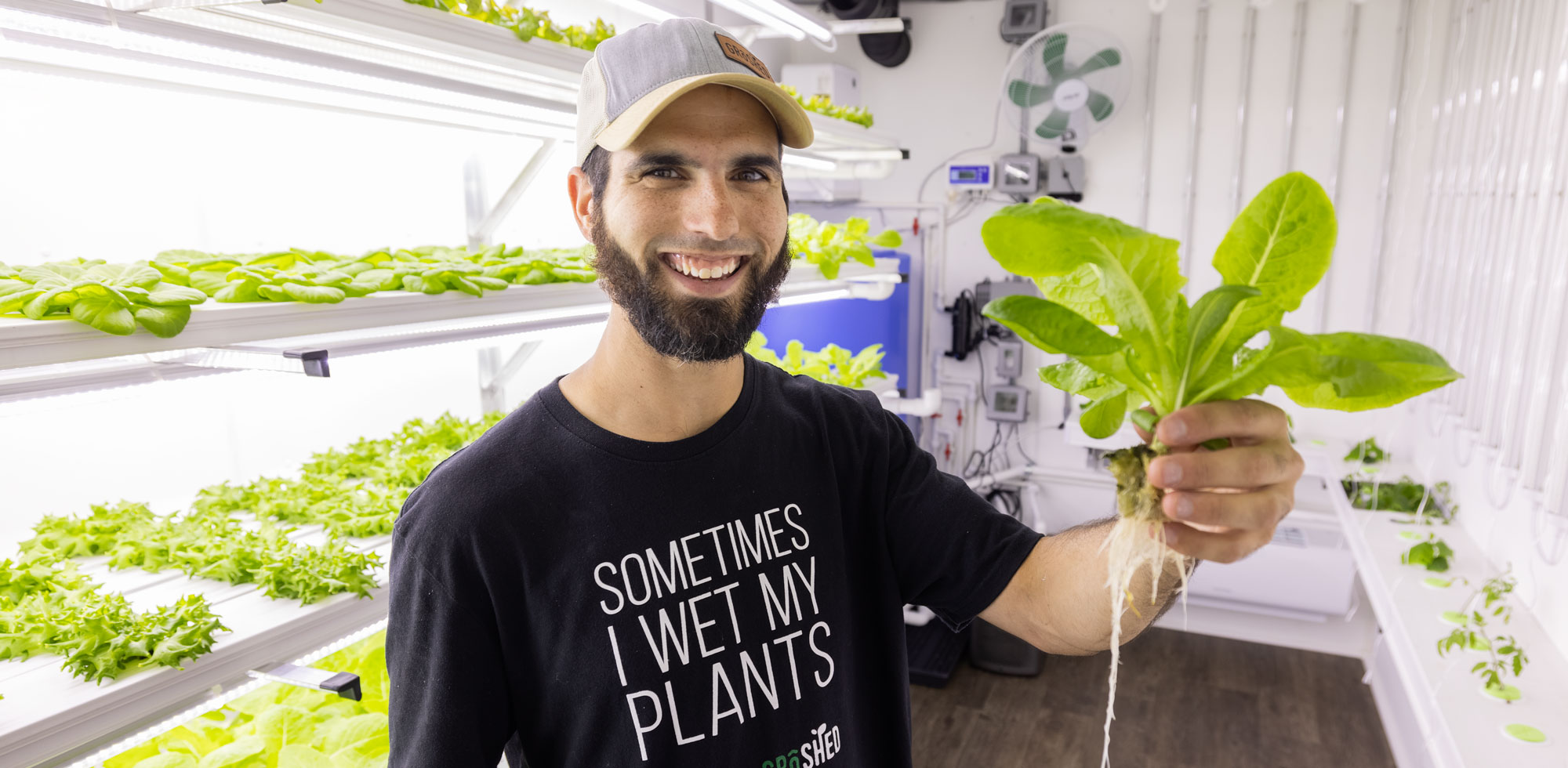
Friesner and two employees build each GroShed by hand, whether it’s a standard build or a custom order with materials to match a house. GroSheds range from 96 to 200 square feet and also can be custom-ordered.
Inside the shed, an 80-gallon reservoir runs around the clock, moving nutrient-rich water through the plant trays. “Think of it like a gutter with a lid on it,” said Friesner. “The roots are in the gutter getting nutrients. Above that is the plant getting the light.”
A GroShed farm arrives at a customer’s home ready to grow with tubing, lighting, water tanks, nutrient solution and the first round of plants. The grower fills the reservoir with water, adds nutrients, and plugs the farm into a typical 15-amp outlet.
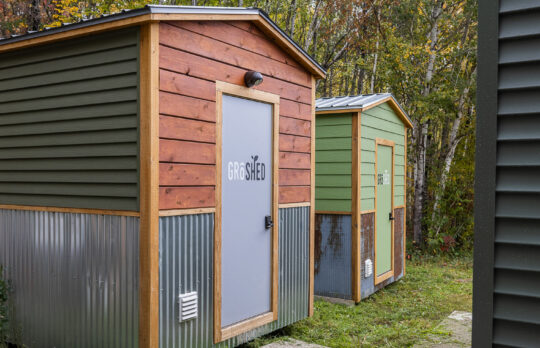
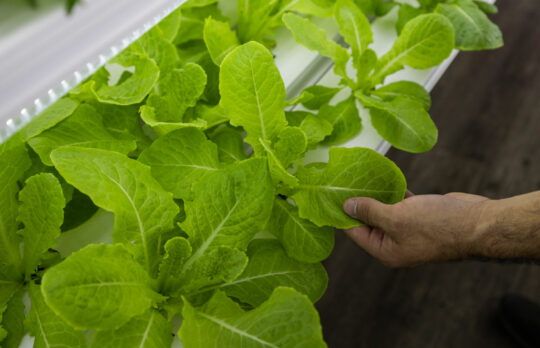
The automated GroShed system controls light and water cycles, pumps, fans, pH levels, humidity and temperature. The energy-efficient farm stays very warm and costs on average $65 per month to power.
The optimal growing conditions maximize a plant’s genetic potential, something Friesner says he didn’t fully realize at first. Peppers taste hotter. Herbs are extremely potent. Tomato plants can live for years. Flowers reach enormous sizes.
Most customers grow lettuce, kale and tomatoes. “You can grow almost anything,” said Friesner. “Most customers grow things that are either expensive or low-quality in the grocery store during the winter.”
The COVID pandemic affected the business in ways both positive and negative. Orders jumped in 2020, but material costs and supply chain problems minimized profits. Things still aren’t back to normal; supply chain issues have increased average GroShed construction time from two to three weeks to more than a month.
The most popular farm size is 96 square feet, which includes 160 planting locations.
GroShed’s typical customers are retired baby-boomers, but Friesner is expanding to small family farms. “My dream is to see farmers using GroShed to sell produce to restaurants or at farmers markets in the dead of winter.”
GroShed was a 2019 semi-finalist in the food/ag/beverage category for the prestigious Minnesota Cup, a yearly competition that supports entrepreneurs in their startup journey.
The farms are engineered to handle 30-below-zero temps outside and warm, humid conditions inside. Materials are mainly foam and plywood, along with commercial sheet vinyl flooring, aluminum racks and recycled plastic. It’s heated entirely by LED grow lights.
As a member of the Initiators Fellowship, a two-year training and development program for social entrepreneurs supported by a $30,000 annual stipend, mentoring and training, Friesner says he has gained access to leadership skills and networking that will help him take GroShed to the next level. “For someone like me in a rural part of the state to have access to this type of training … it’s incredible,” he said.
Related Articles
Redhead Creamery Spirits
Redhead Creamery is diversifying its dairy and entering a new market: distilled spirits. Read More
Better Greens
With the right mix of science, creativity and caring, Montrose-based Better Greens, LLC, is meeting a culinary demand in our diverse region. Read More
Casting Creations
Part foundry and part fabrication shop, Howard Lake business produces custom art sculptures. Read More
